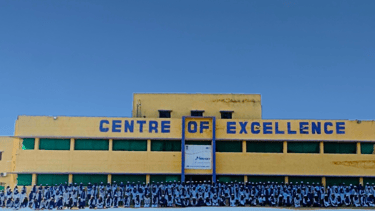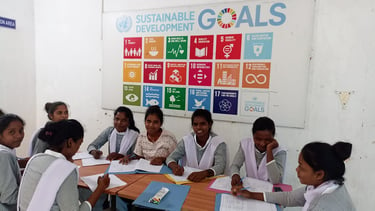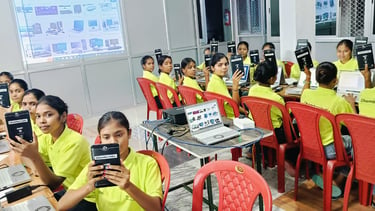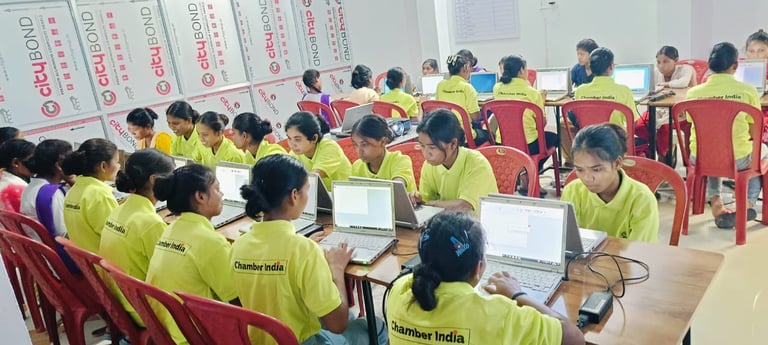Our work in social and development sector














Setting up of processing unit, marketing linkages and IPR protection of Jeeraphool Rice at Aspirational Block-Mahuadanr
Financial inclusion programme for rural youth undergoing training at a centre of the Ministry of Rural Development
Income enhancement of tribal farmers through beekeeping (pilot) in Aspirational District-Lohardaga
Migration and placement support centre for employment of rural women under a national scheme
Capacity building and handholding of FPO at a food processing unit in Aspirational District-Khunti
IPR study of turmeric for income enhancement of farmers of Aspirational District-Seraikela Kharsawan
Future Skills pilot project in Aspirational District-Ranchi
Setting up of processing unit, marketing linkages and IPR protection for Jeeraphool Rice of Aspirational Block-Mahuadanr, Latehar
We have been awarded a project to establish a Rice Processing Unit in one of Jharkhand’s most remote and underserved regions.
This project focuses on tribal and smallholder farmers cultivating indigenous rice varieties, particularly the highly valued Jeeraphool grain native to the region.
Setting up of unit with automatic processing and packaging machinery.
Capacity building and handholding of farmers of the FPO.
Research and application of Geographical Indication (GI).
Branding and marketing support.


Financial inclusion programme for rural youth undergoing training at a centre of the Ministry of Rural Development
We partnered with country’s leading organisation implementing the DDU-GKY programme to support beneficiaries from ultra-poor households.
The Chamber coordinated with SHGs, Panchayats, Training Partner and the District Administration to facilitate mobilisation, counselling and induction of eligible beneficiaries, including bank account opening and post-induction financial literacy programme to ensure legitimate migration.
Through our efforts, the district successfully screened eligible beneficiaries and enabled their enrollment at India’s largest residential vocational training centre for rural women, creating a strong foundation for sustainable livelihood and financial inclusion.


Income enhancement of tribal farmers through beekeeping (pilot) in Aspirational District-Lohardaga
This initiative was designed to create an additional, high-value revenue stream for families living in some of the most economically marginalized regions of the country.
Beekeeping is a high-impact, low-barrier livelihood model for tribal farmers, enabling an increase in their household income.
Training was conducted as per QP: AGR/ Q5301 as per National Skills Qualification Framework and certification was done by NSDC affiliated partner organisation.


Migration and placement support centre for employment of rural women under a national scheme
The Centre functions as a complete support system for rural women undergoing skill training, offering end-to-end assistance from interview preparation, scheduling to travel arrangements and post placement support. Candidates received offers from some of country’s leading companies.
Beneficiaries of the following schemes were included:
‘Hunar Se Rozgar Tak’ by Ministry of Tourism
‘Deen Dayal Upadhyaya Grameen Kaushalya Yojana’ by Ministry of Rural Development


Capacity building and handholding of FPO at a food processing unit in Aspirational District-Khunti
Baseline survey of farmers in 6 blocks of Aspirational District Khunti.
Marketing linkages with institutional buyers, restaurants and catering companies.
To give products national visibility, the products were onboarded on e-commerce platforms like Amazon.
Facilitated FFSAI’s vegan certification, for better pricing of products.
Organised participation of farmers in national food exhibition.


IPR study of turmeric for income enhancement of farmers of Aspirational District-Seraikela Kharsawan
MoU with India’s leading Geographical Indication (GI) firm having experience of registering maximum number of agricultural GIs in the country.
The Chamber conducted study for GI application for ‘Kharsawan Turmeric’ of Aspirational District Seraikela Kharsawan.
This initiative was undertaken to protect the identity of the region’s indigenous produce, enhance its market value, and create long-term economic benefits for tribal farmers.


Future Skills pilot project in Aspirational District-Ranchi
We conducted Future Skills training for students undergoing hotel management training. Aptitude and skill tests during the initial stage of hotel management training indicated that students were only being prepared for entry-level jobs. To address this, the project was implemented alongside the regular course.
No. of students trained: 60
Profile of the students: Tribal youth of Jharkhand
Outcome of the project: The results were outstanding, with 100% placement in India’s leading hotel chains like The Leela, The Ummed, Lemontree, Holiday Inn, etc. and with higher salaries than other students applying for the same jobs in the country.




